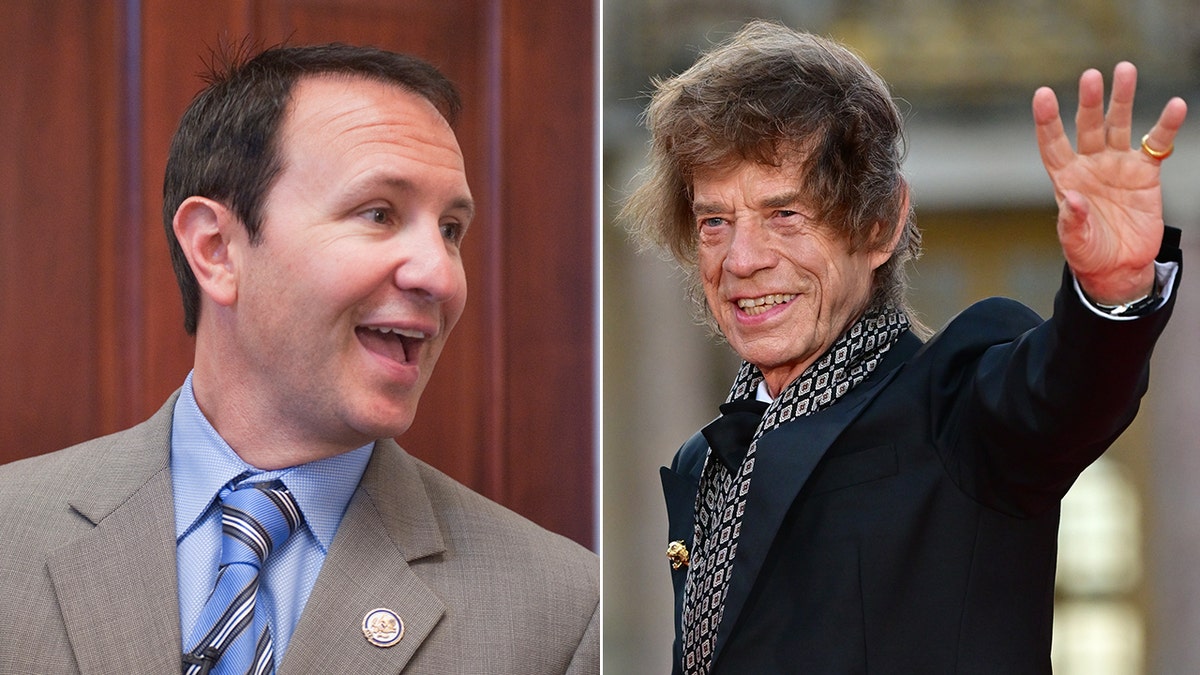Lady Gaga joins The Rolling Stones in concert
Lady Gaga was in NYC for a surprise concert where she performed with The Rolling Stones on Oct. 19. Credit: @venushartt / LIFESTYLOGY /TMX
Rolling Stones’ frontman Mick Jagger ignited a small feud between himself and the Louisiana governor on Thursday while performing in the state.
The 80-year-old British singer and his band performed at the New Orleans Jazz & Heritage Festival to a sold-out show. After finishing the song "You Can’t Always Get What You Want," Jagger called out Gov. Jeff Landry by name.
"We're a welcoming crowd, aren't we?" Jagger asked. "I hope Mr. Landry is enjoying the show. He's real inclusive you know. He's trying to take us back to the Stone Age."

NEW ORLEANS, LOUISIANA - MAY 02: (L-R) Steve Jordan, Keith Richards and Mick Jagger of the Rolling Stones perform on Day 5 of 2024 New Orleans Jazz & Heritage Festival at Fair Grounds Race Course on May 02, 2024 in New Orleans, Louisiana. (Photo by Erika Goldring/Getty Images)
LOUISIANA WILL FORM A NEW CITY OF ALMOST 100,000 PEOPLE AFTER BATTLE MADE IT TO STATE SUPREME COURT
Shortly after the comment, the Republican governor responded on social media, appearing to mock the singer as well.
"You can’t always get what you want," he posted on X. "The only person who might remember the Stone Age is Mick Jagger. Love you buddy, you’re always welcome in Louisiana! #LoveMyCountryMusic."

Gov. Jeff Landry later responded to Mick Jagger on X. (Photo By Bill Clark/Roll Call/Photo by Christian Liewig - Corbis/Corbis via Getty Images)
Though Jagger did not elaborate, Landry has supported several conservative policies since his inauguration in January, such as enacting more tough-on-crime legislation and enshrining Constitutional Carry into law.
Landry also indicated that he would support bills that were previously vetoed by former Gov. John Bel Edwards, a Democrat, such as one that would prohibit gender identity discussion in K-12 public schools and require teachers to inform parents about students changing their pronouns.
Though Landry might get away with referencing the iconic "You Can’t Always Get What You Want," not all politicians have escaped scrutiny. In 2016, the band demanded then-candidate Donald Trump stop using the song, during campaign rallies, as well as "Start Me Up."
When he continued to use the song in 2020, the band finally demanded legal action in partnership with BMI, a performing arts rights organization.

The Rolling Stones previously demanded their song "You Can't Always Get What You Want" stop being played at Trump rallies. (Sven Hoogerhuis/BSR Agency/Getty Images)
CLICK HERE TO GET THE FOX NEWS APP
"The BMI have notified the Trump campaign on behalf of the Stones that the unauthorized use of their songs will constitute a breach of its licensing agreement," said the statement. "If Donald Trump disregards the exclusion and persists then he would face a lawsuit for breaking the embargo and playing music that has not been licensed."





















